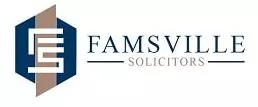INTRODUCTION
On the 16th of June, 2021, the Securities and Exchange Commission (herein referred to as the SEC) announced the imminent roll-out of the SEC Regulatory Incubation (RI) program for Financial Technology (FinTechs) firms operating or seeking to operate in the Nigerian Capital Market.
The Regulatory Incubation Guideline was issued in line with the provisions of the Investment and Securities Act (ISA)1 which confers the various powers and functions on the SEC as the apex regulatory organisation for the Nigerian Capital market2 and prohibited any expert or professional from carrying out any activity in the Capital Market except registered by the SEC3 in accordance with its condition and manner of registration.4
THE REGULATORY INCUBATION GUIDELINES
The RI Program is an interim measure to aid the evolution of effective regulation which accommodates the innovation by FinTechs without compromising market integrity and within limits that ensure investor protection. The SEC stated that the RI Program will be launched in the third quarter of 2021 and will operate by admitting identified FinTech business models and processes to operate under some prescribed basic but limited provisions while supervising and monitoring them for a one-year period in order to aid the evolution of effective regulation and innovation of FinTechs in Nigeria.
The Guidelines create a sandbox that offers a safe place for start-ups and other businesses to test innovative product, services, business models and delivery mechanisms relating to capital in a live market without having to immediately satisfy existing regulatory requirements. These Guidelines establish the Pre-Qualification, Incubation Form and Fee, Operations Requirement, Restrictions and Conditions, Termination and Content of the Implementation Plan.
1. Pre-Qualification Requirement
a) Applicant shall be using innovative technology to offer a new type of product or service, or applying innovative FinTech to an existing product or service.
b) The business shall involve an activity that, if carried on in or from Nigeria, is a financial service (i.e. it is within the scope of the activities that the SEC regulates).
c) Applicant shall be ready to take-off with live customers and operate within the purview of the SEC Regulatory Framework.
d) Applicant shall commit to applying for registration as soon as Rules are provided by the SEC.
e) The product or service shall be one that addresses a problem (compliance or supervision) or brings potential benefits to consumers or industry. Applicant shall ensure that the product is safe for investors.
f) Applicant shall complete the FinTech Assessment Form and discuss the proposal with SEC at an early stage.
2. Regulatory Incubation Operations Requirement
Applicant shall:
a) be deemed fit and possess relevant skills in financial services and/or technology;
b) undertake to act with integrity due care and diligence and provide referee information;
c) undertake to provide full information to clients and commit to send them regular feedback;
d) undertake to provide full disclosure to the Commission on the business through an incubation implementation plan;
e) undertake to provide procedure for holding and controlling client assets;
f) undertake to comply with all relevant laws and regulations;
g) have an office in Nigeria;
h) undertake to comply with AML/CFT requirements; and
i) undertake to provide monthly reports to the Commission;
3. Restrictions and Conditions
A FinTech operator under Regulatory Incubation:
a) shall not conduct any other investment business except as presented to the SEC;
b) is prohibited from financial promotions which guarantee returns. These include any notice, circular, letter or other written or electronic medium of communication addressed to any person;
c) Shall not provide information containing any untrue or misleading statement;
d) shall have the capacity to on-board a maximum of 100 clients who shall be fully informed of the service or product prior to on-boarding. Subject to the Commission's appraisal and approval, the firm may on-board additional clients if the need arises. Firms that are already in operation shall maintain their existing clients and cease on-boarding new ones; and
e) shall be under regulatory incubation only for a maximum period of one-year after which shall apply for registration if found eligible or discontinue the activity.
4. Termination/Removal from Regulatory Incubation
Without limiting any other grounds on which it may act, the SEC may terminate participation in the regulatory incubation process at any time if the FinTech Operator:
a) is declared unfit to participate in the process, that is, through a change in any of the eligibility criteria or otherwise;
b) has breached any restrictions or conditions imposed on the participation;
c) has breached the Law or these guidelines;
d) deviates from the implementation plan; or
e) has not promptly taken steps either to apply for registration or submit a notice of discontinuance after the one-year period of the regulatory incubation process. An applicant may on its own withdraw from the regulatory incubation process at any time if it can no longer meet the stipulated requirements by notifying the SEC and ceasing to operate.
5. Regulatory Incubation Form and Fee
An Applicant shall comply with the following:
a) complete the relevant application form; and
b) pay a processing fee of N200,000.00.
6. Content of the Implementation Plan
An applicant shall provide the following documentation along with the application:
a) Full description of the business and the proposed innovative FinTech product, service or business model including type of technology;
b) Objectives and parameters for the incubation period;
c) Implementation timeline and key milestones for testing;
d) Existing/target customers;
e) Risk Management Framework, clearly stating key risks and how they will be controlled and mitigated including insurance cover;
f) A description of how the FinTech Operator will ensure that customers fully understand the risks;
g) A description of how communications with customers will be handled before and during the incubation period including how the FinTech Operator will deal with queries, feedback and complaints;
h) A description of the next steps at the expiration of the incubation period; and
i) A clear exit plan if registration is not achieved, including how the FinTech Operator will fulfil its obligations to its customers
IS THE SEC REGULATORY INCUBATION GUIDELINES CREATING AN ENVIRONMENT TO ENABLE INNOVATION OR ASSERT CONTROL OVER FINTECH FIRMS?
The SEC stated that its program supports the evolution of effective regulation that accommodates innovation by FinTech firms without compromising market integrity. However, based on the requirements and procedures, can this be said to be true?
The requirements and procedures to qualify and participate in the Regulatory Incubation Program already infer that not all FinTech companies will qualify for the program. Therefore, how can adequate rules be created to govern all FinTechs in Nigeria? What is the guarantee that the 'selected' few will give an adequate representation of all interests in the FinTech industry?
Furthermore, Paragraph 3 of the Guidelines provides for Restrictions and Conditions that bind FinTech operators under Regulatory Incubation. These restrictions will prevent participating operators from venturing into novel investment businesses not presented to the commission and leave such FinTechs at the risk of not being able to continue with some of their services or compete with those under more favourable jurisdictions.
Excluding the points above-mentioned, FinTech companies might be sceptical or weary of participating in the program for the following reasons:
- Uncertainty of being selected despite payment of processing fee
One of the requirements is the payment of the N200,000 processing fee to the SEC. This fee may scare away potential FinTech start-ups from participating in the program because even after the payment of this sum, there is little to no guarantee they will be selected to participate in the program. Furthermore, these start-ups are out-sourcing for funds and investments to execute projects and as such have little to no money to spend on programs with no certainty of participation.
- Constantly changing regulations and policies issued and imposed by the SEC and CBN on capital market operators
Local and international FinTech companies and start-ups in Nigeria have lost confidence in the Nigerian regulations and policies because they are unstable and have the potential of affecting their businesses adversely. This might also discourage participation in the RI program.
- Uncertainty of success after participating in the RI program for one year
Under the SEC RI Guidelines, the SEC may terminate participation or registration even after the one-year period of the regulatory incubation process.
All these make one wonder how effective the Regulation Incubation Program will be.
CONCLUSION
The RI Guidelines as a sandbox is novel, and the absence of substantial data and diversity on this approach make any measurement of success challenging. The RI program is an important and necessary approach to dealing with FinTech innovations. Proper, transparent and open dialogue between the SEC and operators, where both sides learn from the eachother, is perhaps a key element of advancing to a regulatory mind-set that responds to and reflects the FinTech revolution. Whether the objectives of the SEC flourishes will depend on how it is framed and fundamentally on market conditions, market competition, the quality of the innovation, level of development of the financial market infrastructure, customer trust and engagement, and proper implementation. If the RI program is implemented properly, companies and entrepreneurs will have access to an environment where they could test their products and at the same time, work with regulators to design the necessary regulations and consumer protections. This will create a balance in the Nigerian financial and legal sector and provide the regulatory authorities with better information and knowledge on the products and services proposed to be introduced into the market.
Footnotes
1. Investment and Securities Act, Cap 29, LFN 2004.
2. Ibid. Section 13.
3. Ibid. Section 38(1).
4. Ibid. Section 38(2) (3).
The content of this article is intended to provide a general guide to the subject matter. Specialist advice should be sought about your specific circumstances.



